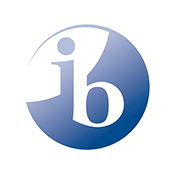Overview
Curriculum and Instruction at Mary McLeod Bethune Day Academy Public Charter School
Mary McLeod Bethune Day Academy Public Charter School (MMBDA) offers a standards-based curriculum aligned with the requirements of the District of Columbia Board of Education. A distinctive feature of our academic program is a Dual Language Immersion model in Spanish for students in Pre-K through Grade 5.
MMBDA’s educational philosophy centers on academic excellence, talent development, and fostering a lifelong love for learning. Our mission includes preparing students for success in the 21st century—where technological literacy, creativity, and critical thinking are essential. Students regularly use laptops, iPads, and calculators to deepen learning. For example, music students use iPads to compose original pieces. Classrooms are equipped with SmartBoards, LCD projectors, document cameras, and desktop computers to support instruction.
We implement a co-teaching model with a 10:1 student-to-teacher ratio, which allows for targeted instruction and inclusive practices. Teachers engage in collaborative co-planning, reflection, and mentorship to promote creative, effective teaching and support all learners—including those with special needs.
We believe that Foreign Languages, Art, and Music are essential for nurturing well-rounded, creative, and thoughtful students. Our faculty, staff, and Board of Trustees are committed to providing a high-quality education that empowers students to think critically, creatively, and analytically.
We Believe in an Educational Experience that Provides:
-
Exposure to diverse topics, people, and perspectives
-
Acquisition of world languages
-
Opportunities to develop creativity and individual talents
-
Mastery of communication skills—reading, writing, speaking, and digital fluency
-
Development of strong character: integrity, compassion, fairness, and responsibility
-
A sense of curiosity, critical thinking, and a commitment to lifelong learning
-
Real-world application of knowledge through science, literature, and current events
Academic Program Highlights
Our academic program is developmentally appropriate, rigorous, and engaging, with differentiated instruction to meet individual needs. Mastery is demonstrated through performance-based assessments and standardized test performance.
Reading/Language Arts
Students engage in 90 minutes of daily literacy instruction emphasizing phonemic awareness, vocabulary, comprehension, and verbal expression. We implement Amplify Core Knowledge Language Arts (CKLA) in Grades K–5, which builds strong foundational skills while integrating content-rich literature, science, and social studies themes.
Math
Students receive daily math instruction through Eureka Math², a conceptually rich curriculum that builds deep understanding, procedural fluency, and real-world application. Students work in teacher-led groups, independently, and through hands-on exploration.
Foreign Language
Students engage in Spanish language learning beginning in Pre-K through a dual language immersion model, continuing through grade 5. Middle school students study both Spanish and Latin.
Science
Students explore physical, life, and earth sciences through hands-on, inquiry-based learning. We use Mystery Science and Generation Genius, two dynamic programs that deliver engaging, standards-aligned science lessons using video explorations, hands-on investigations, and real-world connections that spark curiosity and build scientific literacy.
Social Studies
Students examine local, national, and global topics, using inquiry and current events to understand their communities and roles as citizens.
Visual Arts
Students receive formal art instruction twice per week and explore creative expression through integrated arts activities in core subjects.
Performing Arts
Students engage in music, drama, and dance through in-class and after-school programs. Each class also leads at least one assembly presentation per year.
Physical Education
All students participate in health and fitness activities that promote teamwork, wellness, and lifelong physical activity.
21st Century Learning and Technology Integration
MMBDA embraces blended learning and 21st-century tools to extend and enrich instruction. Classrooms mirror the modern world with devices such as iPads, laptops, and document cameras. Teachers integrate technology to personalize instruction, analyze data, and increase engagement.
Digital Tools We Use:
-
Amplify CKLA (K–5): Comprehensive ELA curriculum combining foundational skills with knowledge-building content.
-
Eureka Math² (K–8): Rigorous, coherent math curriculum that deepens conceptual understanding.
-
i-Ready (K–8): Adaptive diagnostic and personalized learning platform for reading and math.
-
IXL (PreK–8): Personalized practice in ELA, Math, Science, and Social Studies with real-time diagnostics.
-
Edulastic (Grades 3–8): State-aligned digital assessment platform supporting benchmarks and progress monitoring.
-
Zearn (K–8): Interactive math platform aligned with Eureka Math², supporting fluency and conceptual development.
-
Reading A-Z (PreK–5): Leveled reading resources and printable materials in multiple languages.
-
Teaching Strategies GOLD (Pre-K): Assessment system that supports whole-child development and aligns with Creative Curriculum.
-
Mystery Science (K–5): Hands-on, NGSS-aligned science lessons that encourage critical thinking and investigation.
-
Generation Genius (K–8): Standards-aligned video lessons and experiments that bring science and math concepts to life through real-world applications.
-
Clever: A single sign-on platform that provides easy, secure access to all of MMBDA’s digital tools and instructional resources.
A Cohesive, Developmentally Appropriate Approach
Serving students from PreK-3 through 8th grade, MMBDA’s academic program is tailored to meet the needs of each developmental stage. Our Early Childhood, Elementary, and Middle School divisions emphasize interdisciplinary, inquiry-driven learning. Teachers collaborate to design thematic units that connect concepts across subjects and to the real world.
For example, while studying decomposition in math, fourth graders simultaneously explore decomposition in studio art—breaking down complex visuals into basic shapes—demonstrating how learning is meaningfully connected across disciplines.
At Mary McLeod Bethune Day Academy PCS, our commitment is to cultivate empowered, compassionate, and curious learners who are ready to contribute meaningfully to their communities and the world.

